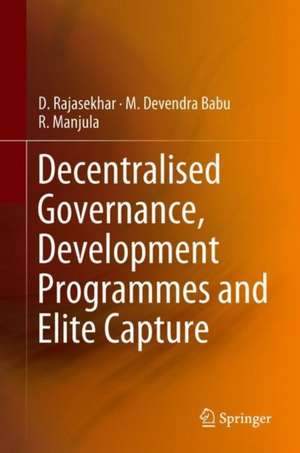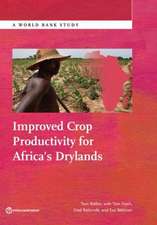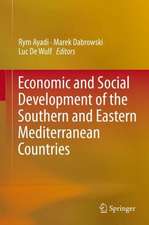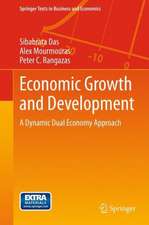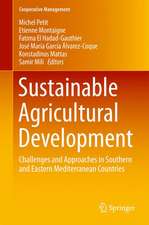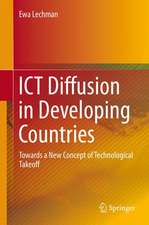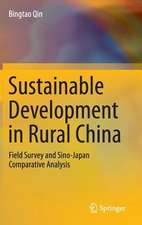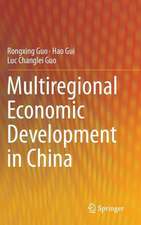Decentralised Governance, Development Programmes and Elite Capture
Autor D. Rajasekhar, M. Devendra Babu, R. Manjulaen Limba Engleză Hardback – 18 oct 2018
The policy makers in India introduced decentralised governance to facilitate the participation of marginalized groups in the planning and implementation of development programmes at the local level, and to ensure that development benefits reach them. International agreements such as the Hyogo Framework for Action, Millennium Development Goals and Sustainable Development Goals also call for decentralised governance for inclusive growth.
The issue of elite capture has traditionally been studied mainly from the sociological perspective, i.e., how the local upper/dominant castes and classes garner the positions and benefits. But with the new and structured governance system that is in place at the local level in contemporary India, this book explores how decentralised governance is addressing the issue of elite capture. The study closely analyses micro processes of decentralisation to understand how elite capture is taking place. Additionally, it examines this concern from both governance and economic perspectives. The scope of the book is wide, and encompasses several aspects such as the functioning of the local government, decentralised governance, checks and balances in development programmes, community-based organisations, the upward political linkages and elite capture. It is equally relevant to researchers from several social science disciplines, civil society, policy makers, and implementers from the grassroots to national level government.
| Toate formatele și edițiile | Preț | Express |
|---|---|---|
| Paperback (1) | 382.18 lei 6-8 săpt. | |
| Springer Nature Singapore – 26 ian 2019 | 382.18 lei 6-8 săpt. | |
| Hardback (1) | 389.49 lei 6-8 săpt. | |
| Springer Nature Singapore – 18 oct 2018 | 389.49 lei 6-8 săpt. |
Preț: 389.49 lei
Nou
Puncte Express: 584
Preț estimativ în valută:
74.53€ • 77.81$ • 61.68£
74.53€ • 77.81$ • 61.68£
Carte tipărită la comandă
Livrare economică 04-18 aprilie
Preluare comenzi: 021 569.72.76
Specificații
ISBN-13: 9789811318993
ISBN-10: 9811318999
Pagini: 176
Ilustrații: XXI, 169 p. 10 illus. in color.
Dimensiuni: 155 x 235 mm
Greutate: 0.45 kg
Ediția:1st ed. 2018
Editura: Springer Nature Singapore
Colecția Springer
Locul publicării:Singapore, Singapore
ISBN-10: 9811318999
Pagini: 176
Ilustrații: XXI, 169 p. 10 illus. in color.
Dimensiuni: 155 x 235 mm
Greutate: 0.45 kg
Ediția:1st ed. 2018
Editura: Springer Nature Singapore
Colecția Springer
Locul publicării:Singapore, Singapore
Cuprins
1. Introduction.- 2. Elite Capture in Decentralised Institutions.- 3. Overview of Decentralisation in India.- 4.Grama Panchayats: A Background of Members and Governance.- 5. MGNREGS and Housing Programmes: Checks and Balances to Prevent Elite or Programme Capture.- 6. MGNREGS: Has There Been a Capture?.- 7. Capture of Housing Programme Benefits.- 8. Conclusion.
Notă biografică
Dr. D. Rajasekhar is Professor in Economics at the Centre for Decentralisation
and Development, Institute for Social and Economic Change (ISEC), Bengaluru.
He was Visiting Scholar at the Universities of Oxford, Melbourne, Sussex and at
the Centre for Development Research, Copenhagen. He has worked extensively on
decentralisation, social protection, microfinance and local organisations. He has
published 20 books/monographs and 70 papers in various journals and as chapters.
He has served in policy bodies constituted by the government. His paper on
‘Collusion, Co-option and Capture: Social Accountability and Social Audits in
Karnataka, India’ published in Oxford Development Studies (Taylor & Francis) was
awarded the Sanjaya Lall Prize for its contribution to the development studies. He is
currently collaborating with researchers from the London School of Economics, and
the universities of Bristol, Melbourne and Oxford in research relating to decentrali-
sation and poverty reduction, delivery of public services and social protection. His
co-authored paper on ‘Motivating Knowledge Agents: Can Incentive Pay Overcome
Social Distance?’ is being published in The Economic Journal (Wiley-Blackwell).
Dr. M. Devendra Babu is former Professor, Centre for Decentralisation and
Development, Institute for Social and Economic Change, Bengaluru. His areas of
interest are rural decentralisation and public economics. He has published two
books (co-authored) and a monograph, as well as articles in national and interna-
tional journals. The recent projects that he has been involved in include ‘District
Perspective Plans’ and ‘District Human Development Reports’.
Dr. R. Manjula holds a Ph.D. in economics and is working as Assistant
Professor at the Centre for Decentralisation and Development at ISEC, Bengaluru.
She was Academic Visitor at the Department of Economics, University of Oxford,
UK. She has published several books and research papers (in national and international journals and as chapters). Her co-authored paper on ‘Collusion,
Co-option and Capture: Social Accountability and Social Audits in Karnataka,
India’ published in Oxford Development Studies (Taylor & Francis) was awarded
the Sanjaya Lall Prize for its contribution to the development studies. Her recent
co-authored paper on ‘Motivating Knowledge Agents: Can Incentive Pay
Overcome Social Distance?’ is being published in The Economic Journal
(Wiley-Blackwell). She has worked on several of the centre’s research projects,
covering themes of decentralisation, child labour, social security, health insurance
and public works programme and collaborating with researchers from the London
School of Economics and the Universities of Bristol, Melbourne and Oxford.
Textul de pe ultima copertă
This book discusses the elite capture taking place in the development programmes implemented through Grama Panchayats (GPs), the lowest tier in the rural local self-government structure in India. Inclusive growth being the cherished goal of all the developing countries, including India, the book assesses whether checks and balances incorporated in development programmes prevent elite capture and promote inclusive development. It also highlights the role of community-based organisations, such as SHGs, in ensuring development benefits reach marginalized groups.
The policy makers in India introduced decentralised governance to facilitate the participation of marginalized groups in the planning and implementation of development programmes at the local level, and to ensure that development benefits reach them. International agreements such as the Hyogo Framework for Action, Millennium Development Goals and Sustainable Development Goals also call for decentralised governance for inclusive growth.
The issue of elite capture has traditionally been studied mainly from the sociological perspective, i.e., how the local upper/dominant castes and classes garner the positions and benefits. But with the new and structured governance system that is in place at the local level in contemporary India, this book explores how decentralised governance is addressing the issue of elite capture. The study closely analyses micro processes of decentralisation to understand how elite capture is taking place. Additionally, it examines this concern from both governance and economic perspectives. The scope of the book is wide, and encompasses several aspects such as the functioning of the local government, decentralised governance, checks and balances in development programmes, community-based organisations, the upward political linkages and elite capture. It is equally relevant to researchers from several social science disciplines, civil society, policy makers, and implementers from the grassroots to national level government.
Caracteristici
Explores the links between decentralised governance and elite capture Discusses the effectiveness of checks and balances introduced in development programmes to prevent elite capture Discusses coping mechanisms adopted by the households affected by elite capture
